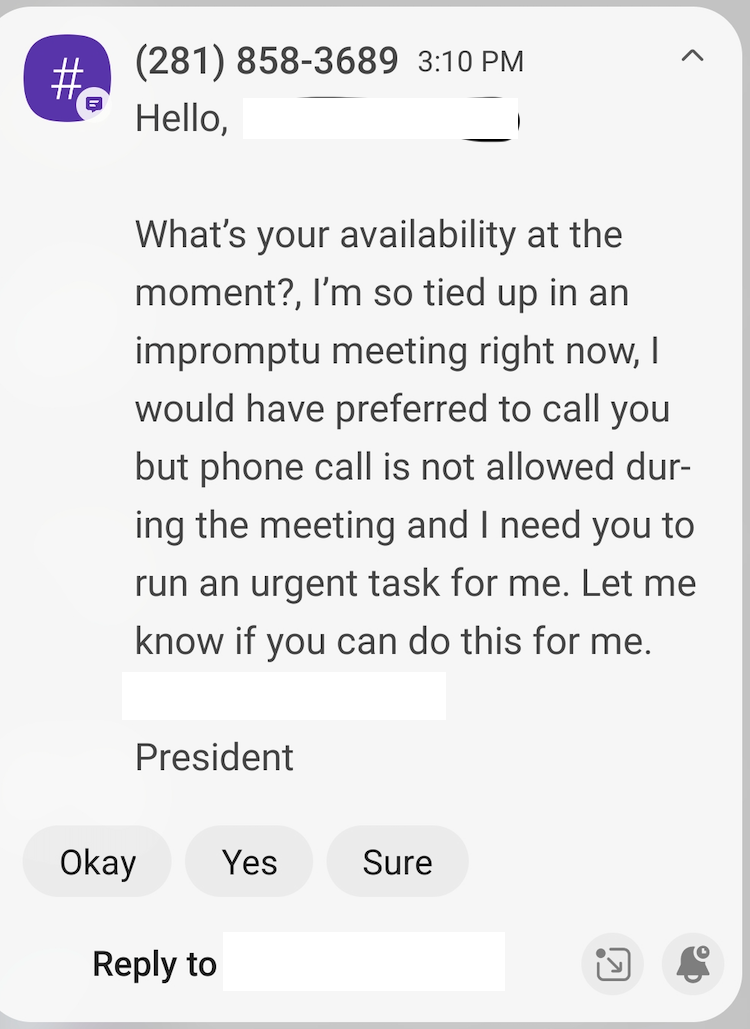ISEC has received multiple reports by other CSU campuses about individuals receiving unsolicited text messages from unrecognized phone numbers masquerading as campus officials. If you have received a similar text message, please do not reply or respond to the message.

What is Smishing?
Smishing is a term used to describe phishing attempts and scams that use text messages or (Short Message Service) SMS as the primary attack platform. It is used to gather different types of personal information, including addresses, credit card information, and more.Spam texts (also known as phishing texts spam) are messages sent by hackers which attempt to get you to click on a link or divulge personal details such as banking information, credit cards, address, or even your social security number. Scam types vary, but they will usually make lucrative offers or pretend to be university administration to get you to respond.
Spam or fake text messages vary in form and content, but some key guidelines exist to identify text scams. Here are some common examples:
- The message has no relevance to you.
- The message is urgent or needs immediate action from you.
- The text message contains misspellings or poor grammar.
- The text message comes from an unknown phone number or suspicious email address.
- If a text message comes from a lengthy and/or suspicious-looking email address, it is a spam text message.
- The text message contains a suspicious link.